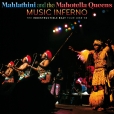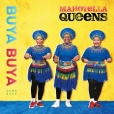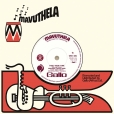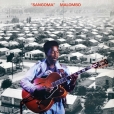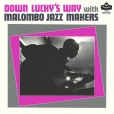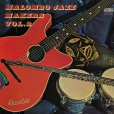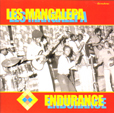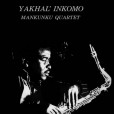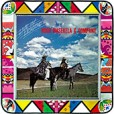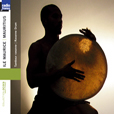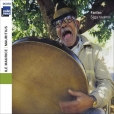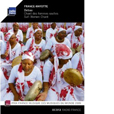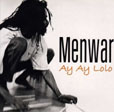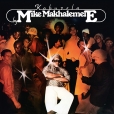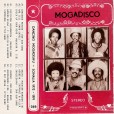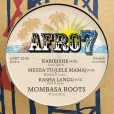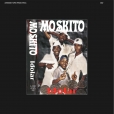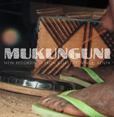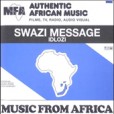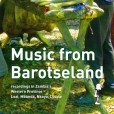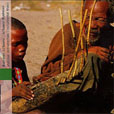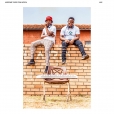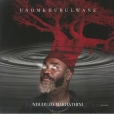Your basket is empty

Sixteen newly-discovered recordings from the Incredible Beat Of Soweto tour of the UK in 1988-89, including smash hits like Thokozile, Lilizela, Kazet, and the rest.
Bees-knees, overproof-vibes mbaqanga.
Sowetan soul jazz — ‘marabi jjive’ — originally out in 1972, by the greatest of all mbaqanga outfits, and the house band of Gallo Africa’s Mavuthela Music subsidiary from its launch in 1964 right through to 1977. Featuring Teaspoon Ndelu, West Nkosi and Michael Xaba on saxophones, and Marks Mankwane on lead guitar.
Appetisingly this is the first of seven limited-edition singles drawn by Umsakazo from the golden age of South African township jive. Restored from the original master in Gallo’s Johannesburg tape vault; spiffily sleeved and labelled with the original artwork, with notes and recording details printed on the back.
‘In 1978, SA guitar genius Tabane stood at a crossroads. Fresh from three years’ touring in the United States, where he graced the Newport Jazz Festival alongside Miles, Herbie, Pharoah and co, and with a newly signed international distribution deal, he harnessed this momentum to a new, larger band setting, capturing a rare intensity.
‘Sangoma — ‘spiritual healer — bridges contradictions: expansive yet intimate, celebratory yet haunted by exile and return. Tracks like Sangoma, Hi Congo and Keya Bereka are not simply recordings but living testaments, songs that would remain in Tabane’s repertoire for decades. Unlike the moody, immersive character of much of his work, here Tabane is on the move — urgent, restless, uncontainable. ‘Maskanta wa tsamaya’, ‘ass-kicking’.
‘More than four decades on, Sangoma is both an historical document and a timeless invocation. A landmark in SA musical history. From his home in Mamelodi to the world and back again, Tabane’s spiritual healing endures — raw, electric, and unbowed.’
‘Malombo music is an indigenous kind of music,’ says Lucky Ranku. ‘If you listen to it, you can feel that it can heal you, if you’ve got something wrong. It’s healing music.’
Lucky was one of the greatest African guitarists of his generation. The deep and hypnotic Down Lucky’s Way was the Jazz Makers’ third album. Recorded in 1969, it was the first to feature additional instruments, and the first to feature Abbey Cindi on soprano saxophone as well as flute. But more than anything else, Down Lucky’s Way is a transfixing showcase for Lucky Ranku’s sui generis guitar virtuosity.
Quite different from their previous recordings, the album shifted the Jazz Makers’ sound toward mesmerising, extended compositions, layered by organ bass and guitar overdubs. Of all the Malombo Jazz Makers recordings, Down Lucky’s Way is the deepest of mood, and the richest of vision.
The most rare, too: it may not ever have been properly issued. Original copies are outrageously scarce — only a few are known among collectors. Prior to this reissue, Lucky was unaware it had ever been released, and had never seen a copy.
Recorded a year after the debut, continuing the earthy flow of Malombo’s music. The two albums have since been recognised as unique landmarks of South African jazz. Alongside full original artwork, both albums feature a new interview with Julian Bahula.
Scintillating East African dance music, from seventies Nairobi. The band’s name mangles ‘marquez le pas’, meaning ‘mark time’: sure enough, the beat is irresistible.
Sublimely convulsive Shangaan electro-gospel by a pastor from Giyani, Limpopo, recorded in 2008, brimming with aching, plaintive, mournful spirituality. However fractured, multi-faceted and fresh the music comes across — that signature whistle and sampled marimba, a little wonky high-life, rough, skittering drum patterns, no bass — the surging vocal lines and harmonies are unmistakably rooted in traditional South African music.
Expertly natural recordings of an intimate concert in 1980.
The ravanne is a large drum — a goatskin stretched over a wooden frame — played with the hands, emblematic of the Creole cultural heritage on this island in the Indian Ocean: the music here is fabulous.
Menwar is a political and cultural spokesperson for the Creole minority in Mauritius, refreshing traditional musical forms like sega to put his messages across. The sound is lightly rootsy, dominated by drums and voices.
Calling all Disco Freaks!
‘The great South African tenorist Mike Makhamalele was a graduate of the key early-seventies group The Drive (alongside Bheki Mseleku and Kaya Mahlangu); and a mainstay of the scene centred on the Pelican nightclub in Soweto. From 1975, he began to record under his own name, developing a sophisticated fusion sound in a musical lane which few of his contemporaries were travelling.
‘Always attuned to other global fashions in Black dance and pop music, under numerous studio aliases he cut 45rpm covers of Fela’s Shakara and the Sugar Hill Gang’s Rapper’s Delight; and in 1979 he entered the Gallo studios with producer Peter Ceronio to respond to the ascendant sound of disco. Named after a township dance craze, Kabuzela was the result: four extended tracks of bouncing, upful disco jazz. Perfectly calibrated for dancing, heavy on the bass and drums, the album is set off by a gleaming centre piece, Disco Freaks — a joyous paean to the weekend and true lost gem of global disco, perfect for the most discerning dancefloors.’
Classic kwaito by Professor Rhythm and friends, from 2001. That defining Jo’burg blend of hip-hop and house, but enlivened by a distinctive grab bag of fresh influences, and notably quirky and quick on its feet.
Beautiful, insurgent, fabulously danceable jazz music from South Africa, flowing out of the penny-whistle kwela bands of the 1950s. (Kwela means ‘get moving’, in Xhosa.)
Bra Gwigwi played alto and clarinet alongside Hugh Masekela and Kippie Moeketsi in The Jazz Dazzlers; also in The Jazz Maniacs and The Harlem Swingsters. He came to the UK from Johannesburg as an actor and clarinettist in King Kong — a musical about a Zulu boxer — which opened in London in February 1961.
Recording in January 1967, at Dennis Duerden’s Transcription Centre, he is joined here by Dudu Pukwana, Chris McGregor, Laurie Allan, and Ronnie Beer, all from The Blue Notes. Ladbroke Grove legend, and mainstay of our London Is The Place For Me series, Coleridge Goode plays double bass.
No less than sixteen shots of jubilant, jump-up mbaqanga. Check the Ethiopian vibe of Mra (which became core repertoire of The Brotherhood of Breath). Listen to Nyusamkhaya, and try to get it out of your head. Impossible.
Lovely notes by Steve Beresford, too.
‘The South African folk music that makes people glad to be alive!’
Stefan Schneider and Sven Kacirek’s scintillating recordings of the Mijikenda tribes, made in different spots in and around Mukunguni village, coastal Kenya: spiritual and healing music, and love-songs.
More from the archives of Tom Mkhize, re-imagining traditional South African music as Library Music in 1980s Johannesburg. Plenty of mbaqanga on this volume, running back to kwela, marabi and early South African jazz. The opener’s a knockout — thumb piano (heavy with delay), makhoyane gourd-resonated musical bow, sikhelekehle fiddle, steel drum and synthesizer.
‘Spectacular examples across the board: mesmeric guitar playing in the Barotse style, which uses tunings from the local thumb-piano tradition; kangombia thumb-piano music; rollicking drum ensembles; and jaw-dropping performances of siyemboka, Barotseland’s national music, played on silimba — giant wooden xylophones, sometimes five metres in length, played by four or five men at once’ (The Wire).
Instrumental music from the north: like the hunting bow, made from wild vine and the tendon of an antelope, struck with a stick or a porcupine spine. One end goes in the performer’s mouth, which makes a resonator.
Two teenagers’ amapiano music from Gauteng province in South Africa, drawing on jazz, folk, afro, deep and tech house, kwaito, and dibacardi… but sounding like none of them.
